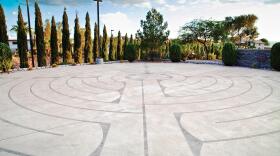2015 may be the year of gaming’s fall from grace. But if gaming isn’t as resilient as we thought, Las Vegas certainly is
It’s hard to say which blockbuster gaming story has been least surprising: Caesars Entertainment’s lengthy attempt to defy gravity while being anchored by 22.8 billion tons, er, dollars, of debt weight or Macau’s astonishing freefall from industry darling to investment also-ran. They’re both stories that will continue to unfold well into 2015. What do they have in common? They’re episodes in what you might call the Year of Gaming’s Stumble from Grace — grace, in this instance, meaning the widespread perception of (perhaps fervent belief in) gaming as the magically resilient industry that somehow always manages to bounce back. Sure, gaming is seemingly ubiquitous these days. But in an age when industry juggernauts lurch and would-be saviors stagger (remember that other Second Coming known as legal nationwide online gaming, with Nevada as the bustling IT brain?), it pays to keep some healthy skepticism handy.
Anybody care to wager which story reaches it climax first, Caesars’ or Macau’s? In the end, it doesn’t matter. Analysts weren’t even surprised when the Caesars bankruptcy filing paperwork hit their inboxes. Well before its mid-January filing, company officials announced what they were going to do — draft a pre-packaged case to turn $10 billion in debt into confetti. The only question was where and when.
Critics will ask, “Will CEO Gary Loveman survive the carnage?” Loveman has been the Caesars punching bag from the day he said the company’s investments in product updates would pay dividends as the economy improved. Only problem: It never improved, at least not to the level Loveman envisioned. Instead of having 40 casinos in 14 states and Canada, including 10 on or near the Strip, the company has those properties, a mountain of debt and an army of Chicago lawyers racking up billable hours. Caesars has prided itself on being the most geographically diverse casino company in the world. Unfortunately for the company, had it been diverse enough to include a foothold in Macau, it might have avoided all the new Loveman belly-flop jokes. (It’s not as though Caesars didn’t try. It had a golf course, but not a single baccarat table in Macau, where it was never able to find a pathway to a gaming concession.)
[[field:story]]
As for Macau, analysts like Chris Jones of Las Vegas-based Union Gaming Advisors say many factors plunged Macau into recession. In December, Macau’s gaming revenue fell 30.4 percent to $2.9 billion, the seventh straight month of year-over-year declines. The fall has been blamed on regulatory crackdowns by China’s central government, tighter credit rules, even a casino smoking ban. Jones puts most of the blame on China’s new visa restrictions that impose limits on visitation. Analysts are forecasting hard times for Macau through at least the first half of 2015. But by later in the year, the city is hoping a surge in infrastructure will jump-start the economy. Just as Treasure Island, Luxor and the MGM Grand opened within two months of each other and boosted the fortunes of the Las Vegas Strip in 1993, Macau is expected to see a similar burst at the end of 2015 and in early 2016 with Sheldon Adelson’s Parisian resort, a new MGM Resorts International property and Steve Wynn’s Wynn Palace, all on Macau’s Cotai Strip. High-speed rail lines and a $10.7 billion bridge are expected to open doors to more gamblers. But it’s too early to predict whether fresh bodies will compensate for constricted demand.
Caesars may not have been able to find itself in Macau, but at least it made its way to the head of the virtual poker table — for whatever that’s worth. Online poker hasn’t been the killer app so many players thought it would be, and the prospects of it growing to anything substantial seem as unlikely as back-to-back royal flushes. With Republicans in control of the Senate, online poker devotees’ dim hopes for getting national legislation approved have vaporized. To many, it seems more likely that Adelson’s campaign influence may buy him enough loyalty to see online poker banned. Have you noticed there’s no more talk of state-to-state compacts to broaden the market? Station Casinos’ Ultimate Poker shutdown 19 months after dealing its first cards sent the message poker players didn’t want to hear: The market isn’t lucrative enough to survive.
A more compelling showdown may be ahead as early as this year on sports book wagering beyond Nevada’s borders. Gov. Chris Christie has led New Jersey’s battle to take sports bets, a move that the NCAA and professional sports leagues blocked in court. Some sports leagues, most notably the National Basketball Association and the National Hockey League, have taken a somewhat softer stance on sports betting and may be receptive to at least considering an expansion to other states.
And speaking of hockey expansion, the prospect of the NHL coming to Las Vegas is looking like a possibility that could bring yet another entertainment option that could draw visitors to the city. It’s been well established that non-gaming attractions are paying more of the bills as gaming spreads across the U.S. The state Gaming Control Board’s 2014 gaming abstract published earlier this year showed that food and beverage, hotel rooms and entertainment made a larger revenue contribution to Clark County resorts than the casino. And the percentage is expanding. In 2000, casino revenue represented 51.7 percent of the revenue collected. By 2014, the percentage had shrunk to 43.1 percent. What does that mean to the average consumer? It means that they’ll see properties trying more non-casino activities and devoting more space to provide experiences that don’t involve trying to beat the house odds.
In 2015, that means visitors and locals will see more festivals and special events. MGM Resorts will host Rock in Rio at Las Vegas Boulevard and Sahara Avenue. Expect the Electric Daisy Carnival to be bigger than ever at the Las Vegas Motor Speedway. Both are luring a younger, hipper audience to the city. Conventions and trade shows will grow. January’s International CES broke all-time attendance records with 170,000 participants.
So Union Gaming’s Jones asks why not hockey? MGM will have a home for it when its new 20,000-seat indoor arena near New York-New York and the Monte Carlo is complete. If those attractions explode, it should tide the Las Vegas casino market over until the next megaresort, Genting Group’s $4 billion, 3,000-room Resorts World Las Vegas, comes on line in 2016.
And they may also make consumers forget all about the Caesars bankruptcy and the downfall in Macau. But it may be wiser to remember.
Richard N. Velotta covers tourism and transportation for the Las Vegas Review-Journal.








